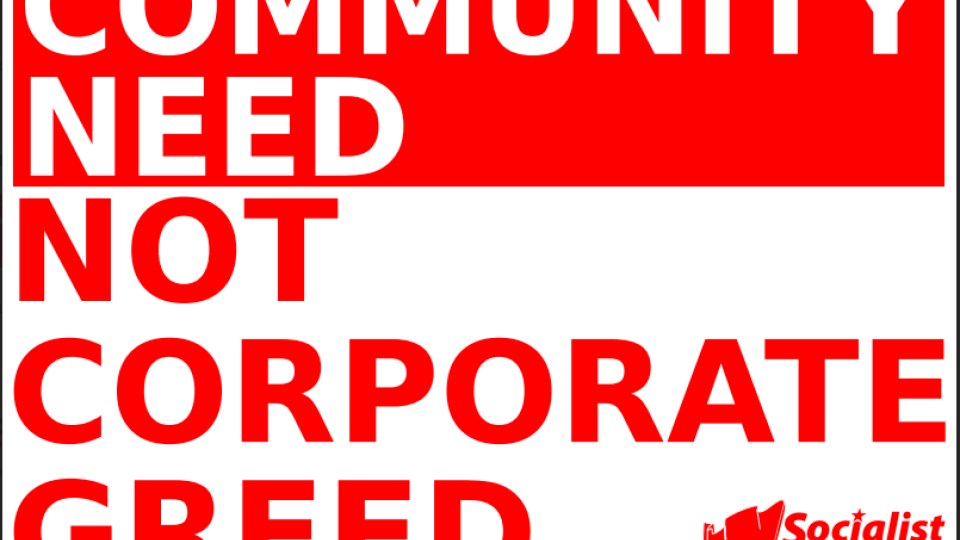Anna Bligh cannot save banks from the public’s outrage

The appointment of former Queensland Labor premier Anna Bligh as CEO of the Australian Bankers' Association (ABA) is a desperate public relations ploy by the Big Four Australian banks to head off a looming royal commission into their crimes and misdeeds.
It seems unlikely to succeed, given the anger in the community against the Big Four — the Commonwealth, National Australia Bank, Westpac and ANZ — and their systematic gouging of the general public.
"Our banks are critical to the strength and stability of our national economy and the prosperity and well-being of every Australian," Bligh said on February 17. "We all rely on our banks for the most important financial decisions of our lives, so we want a system that is open, fair and trustworthy.
"I am excited by this opportunity to lead and shape the reforms needed to strengthen public trust and confidence in our banking system."
Pull the other one, Anna. The big banks are "critical" to only one thing — the massive profits they gouge from the public (the 99%) and hand over to the wealthy plutocrats (the 1%).
Yes, most Australians do "rely on the banks for the most important financial decisions of their lives". But what do they get? Ripped off big time.
Australia's Big Four banks are the most concentrated and profitable banks in the world. These mega-banks are cutting their workforces, while paying their executives huge salaries and bonuses.
The scandals over fraudulent financial planning advice at the banks; exorbitant credit card and home loan interest rates; the refusal of the banks to pass on Reserve Bank interest rate cuts in full; bank bill swap rates collusion; the culture of huge commissions and pressure on staff to sell shonky financial products to customers; the massive salaries and bonuses paid to bank CEOs; and related insurance industry malpractices, all require a thorough, independent investigation and exposure via a royal commission into the financial sector.
Yet Bligh wasted no time in rejecting the calls by federal Labor leader Bill Shorten and the Greens for a royal commission into the banks. She said the federal government had already responded to the public's demand for a better and more trustworthy banking system.
"I think it's clear the government has heard those calls and that's why they've established a number of inquiries that are currently under way," she said.
Clearly, Bligh's appointment to head the ABA is a tactical move by the banks to attempt to put pressure on Labor to back off their demand for a royal commission, which threatens to be a very dangerous expose of banking crimes and could lead to moves for much greater public scrutiny and control of the banking mafia.
But will the move be too clever by half? The appointment of Bligh is merely the latest in a long line of ex-Labor politicians taking up leading posts in big business.
The most recent other blatant sell-out was that of retired Labor senator Stephen Conroy to head up the gambling industry association last year.
Bligh has form in betraying the interests of the labour movement and working people in general. She is infamous in Queensland for privatising huge swaths of the public sector during her time as premier, leading to Labor’s decimation at the 2012 state election.
Despite a strong campaign against the privatisations led by the Electrical Trades Union and other unions, popular resistance was eventually defeated and Bligh rammed through the sell-offs. Since then, privatised rail freight company QR National has made substantial profits for private investors while the public are losing out on precious revenue that could have been used to fund state education, healthcare, housing, social services and renewable energy programs.
Bligh's appointment has also caused dissension in the ranks of the Coalition, with a leading staffer in Treasurer Scott Morrison's office resigning shortly after the announcement. Liberal backbenchers have accused the banks of attempting to "appease" Labor, with some calling for the Big Four banks to be excluded from the government's proposed cuts to company tax.
Whatever the internal problems Bligh's appointment might provoke within the federal government, the fact remains that she is following in a long tradition of "Labor rats" who have sold out Labor’s working-class base for a place at the high table of big business.
While the plan is obviously for her to use her contacts within the Labor hierarchy to attempt to change its support for a banking royal commission, and more broadly to promote a "softer, kinder" public image for these banking moguls, the community anger over the crimes of the big banks is now overwhelming.
The Socialist Alliance supports the call for a thorough, public royal commission into the financial sector, but believes that the labour movement needs to move well beyond relying on such an inquiry to solve the crisis of the banks.
The Socialist Alliance says: Put the big banks in public hands. Nationalise the Big Four under workers' and community control.
The massive assets banks possess should be put under public ownership, to be used for the good of the community. These funds could be used to build public works and to fund public services, instead of new coalmines and coal seam gas developments.
Banks in public hands, under community control, could provide essential services to ordinary people to meet human needs, not corporate profits. Executives would not be paid millions, jobs would stay, interest rates would not be manipulated for profit, fees could be cut and people would not face eviction by the banks, as they do now.
[The Socialist Alliance’s banking policy is available at https://socialist-alliance.org/policy/banking-industry.]